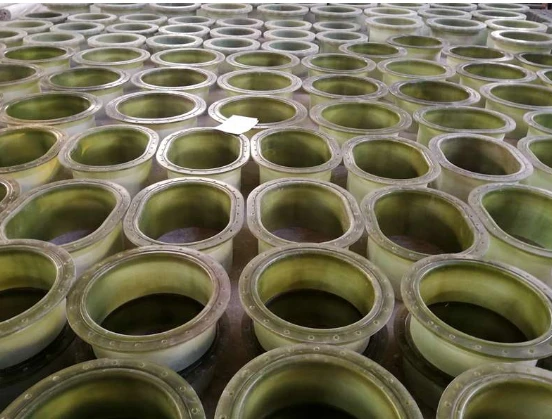
-
 Afrikaans
Afrikaans -
 Albanian
Albanian -
 Amharic
Amharic -
 Arabic
Arabic -
 Armenian
Armenian -
 Azerbaijani
Azerbaijani -
 Basque
Basque -
 Belarusian
Belarusian -
 Bengali
Bengali -
 Bosnian
Bosnian -
 Bulgarian
Bulgarian -
 Catalan
Catalan -
 Cebuano
Cebuano -
 China
China -
 China (Taiwan)
China (Taiwan) -
 Corsican
Corsican -
 Croatian
Croatian -
 Czech
Czech -
 Danish
Danish -
 Dutch
Dutch -
 English
English -
 Esperanto
Esperanto -
 Estonian
Estonian -
 Finnish
Finnish -
 French
French -
 Frisian
Frisian -
 Galician
Galician -
 Georgian
Georgian -
 German
German -
 Greek
Greek -
 Gujarati
Gujarati -
 Haitian Creole
Haitian Creole -
 hausa
hausa -
 hawaiian
hawaiian -
 Hebrew
Hebrew -
 Hindi
Hindi -
 Miao
Miao -
 Hungarian
Hungarian -
 Icelandic
Icelandic -
 igbo
igbo -
 Indonesian
Indonesian -
 irish
irish -
 Italian
Italian -
 Japanese
Japanese -
 Javanese
Javanese -
 Kannada
Kannada -
 kazakh
kazakh -
 Khmer
Khmer -
 Rwandese
Rwandese -
 Korean
Korean -
 Kurdish
Kurdish -
 Kyrgyz
Kyrgyz -
 Lao
Lao -
 Latin
Latin -
 Latvian
Latvian -
 Lithuanian
Lithuanian -
 Luxembourgish
Luxembourgish -
 Macedonian
Macedonian -
 Malgashi
Malgashi -
 Malay
Malay -
 Malayalam
Malayalam -
 Maltese
Maltese -
 Maori
Maori -
 Marathi
Marathi -
 Mongolian
Mongolian -
 Myanmar
Myanmar -
 Nepali
Nepali -
 Norwegian
Norwegian -
 Norwegian
Norwegian -
 Occitan
Occitan -
 Pashto
Pashto -
 Persian
Persian -
 Polish
Polish -
 Portuguese
Portuguese -
 Punjabi
Punjabi -
 Romanian
Romanian -
 Russian
Russian -
 Samoan
Samoan -
 Scottish Gaelic
Scottish Gaelic -
 Serbian
Serbian -
 Sesotho
Sesotho -
 Shona
Shona -
 Sindhi
Sindhi -
 Sinhala
Sinhala -
 Slovak
Slovak -
 Slovenian
Slovenian -
 Somali
Somali -
 Spanish
Spanish -
 Sundanese
Sundanese -
 Swahili
Swahili -
 Swedish
Swedish -
 Tagalog
Tagalog -
 Tajik
Tajik -
 Tamil
Tamil -
 Tatar
Tatar -
 Telugu
Telugu -
 Thai
Thai -
 Turkish
Turkish -
 Turkmen
Turkmen -
 Ukrainian
Ukrainian -
 Urdu
Urdu -
 Uighur
Uighur -
 Uzbek
Uzbek -
 Vietnamese
Vietnamese -
 Welsh
Welsh -
 Bantu
Bantu -
 Yiddish
Yiddish -
 Yoruba
Yoruba -
 Zulu
Zulu
frp valve
Understanding FRP Valves A Comprehensive Overview
In the realm of industrial applications, valves are critical components that regulate the flow of fluids within a system. Among various types of valves, Fiber Reinforced Plastic (FRP) valves have emerged as a significant innovation, owing to their durability, lightweight nature, and resistance to corrosive environments. This article delves into the characteristics, advantages, and applications of FRP valves, highlighting their pivotal role in modern industries.
What is an FRP Valve?
FRP valves are constructed from a composite material that combines a polymer matrix with fibrous reinforcements, usually glass or carbon fibers. This unique composition endows the valves with remarkable strength-to-weight ratios, exceptional corrosion resistance, and high longevity, making them ideal for challenging environments, such as chemical processing, wastewater treatment, and various industrial applications.
Key Characteristics of FRP Valves
1. Corrosion Resistance One of the most significant advantages of FRP valves is their inherent resistance to a wide range of chemicals. Unlike traditional metal valves that can corrode when exposed to harsh substances, FRP valves maintain their structural integrity and functionality even in hostile conditions.
2. Lightweight The lightweight nature of FRP materials simplifies handling and installation. This characteristic is particularly advantageous in locations where weight is a concern, such as in offshore applications or on high-rise buildings.
3. Thermal Stability FRP valves are designed to withstand a variety of temperatures, making them suitable for both hot and cold applications. Their thermal insulating properties also help prevent condensation and thermal expansion-related issues.
4. Design Flexibility The manufacturing process of FRP allows for a variety of designs and specifications. This flexibility enables engineers to tailor valves to specific application requirements, which can lead to improved system efficiency.
frp valve

5. Cost-Effectiveness While the initial cost of FRP valves may be higher compared to traditional options, their longevity and reduced maintenance requirements translate to lower overall replacement and operational costs over time.
Applications of FRP Valves
FRP valves find applications across numerous sectors due to their versatility
- Chemical Processing The ability to withstand corrosive chemicals makes FRP valves a preferred choice in chemical plants, where they are used to control the flow of acids, bases, and solvents.
- Water and Wastewater Treatment In the water treatment industry, FRP valves are utilized for their resistance to chlorine and other treatment chemicals, ensuring optimal performance and longevity in harsh environments.
- Oil and Gas The oil and gas industry frequently uses FRP valves for their reliability in extreme conditions and their ability to handle corrosive substances and high pressures.
- Pharmaceuticals In pharmaceutical manufacturing, where cleanliness and hygiene are paramount, FRP valves provide a non-contaminating solution for fluid handling.
Conclusion
As industries continue to seek advanced materials to improve efficiency and reduce maintenance costs, FRP valves stand out as a practical solution. Their unique properties, including corrosion resistance, lightweight design, and thermal stability, make them increasingly popular across various sectors. When considering valve options for industrial applications, understanding the benefits of FRP valves can lead to more informed decisions that enhance operational efficiency and sustainability.
Latest news
-
Exploring the Benefits of Top Hammer Drifter Rods for Enhanced Drilling PerformanceNewsJun.10,2025
-
High-Precision Fiberglass Winding Machine for GRP/FRP Pipe Production – Reliable & Efficient SolutionsNewsJun.10,2025
-
FRP Pipes & Fittings for Shipbuilding - Corrosion-Resistant & LightweightNewsJun.09,2025
-
Premium FRP Flooring Solutions Durable & Slip-ResistantNewsJun.09,2025
-
Premium Fiberglass Rectangular Tanks Durable & Lightweight SolutionNewsJun.09,2025
-
Tapered Drill String Design Guide Durable Performance & UsesNewsJun.09,2025









